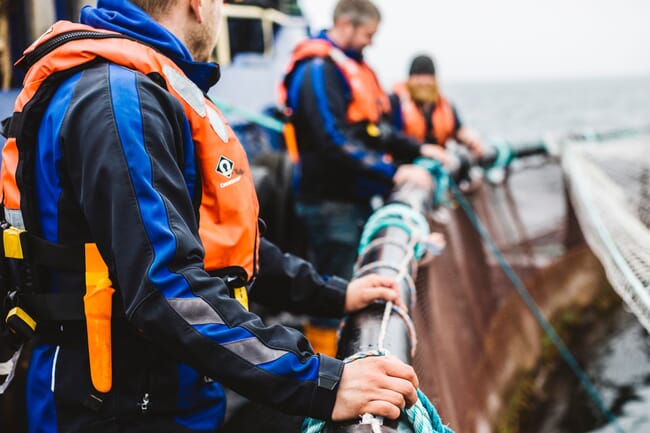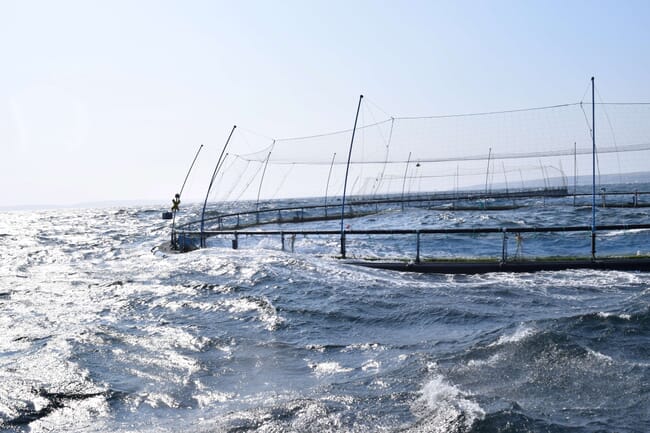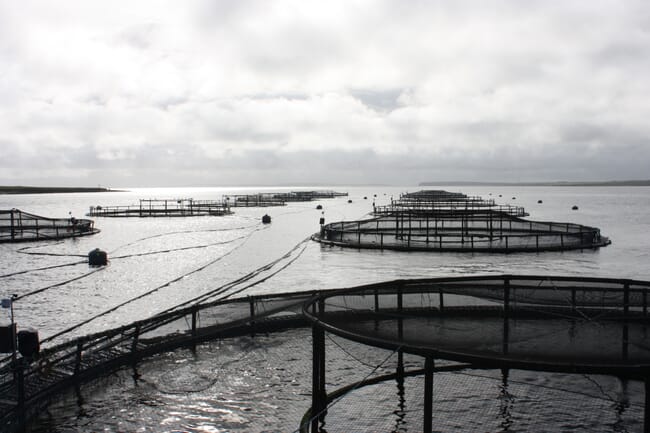
Scotland's salmon sector is responsible for creating thousands of high-paid and skilled jobs in rural areas © Scottish Sea Farms
The study by Cooke Aquaculture Scotland shows that a new farm can be transformational in terms of tackling local depopulation.
Including bonus and overtime payments during 2020 to 21, the report highlights that Cooke’s skilled and permanent jobs are paying an average of £35,112 - 24.8 percent more than the Orkney average and 8.6 percent above the figure for Scotland.
And the company’s local investment is having further impact by supporting local businesses and jobs, sustaining the uptake of local schools, ferries, shops, cafes and creating ongoing operational spending with local businesses.
The local benefits will grow even more if Cooke Aquaculture Scotland’s planning application for a new farm nearly 3 km offshore called East Moclett is approved later this month.
James Park, head of insights at Salmon Scotland, welcomed the report and said: “The farm-raised Scottish salmon sector is responsible for creating thousands of high-paid, skilled and rewarding local jobs.
“Our member companies like Cooke Aquaculture Scotland are at the heart of our island communities, as this report shows.
“In many places the salmon farms help keep the local community alive, the school open and support many local businesses.
“Together, our low carbon sector sustains more than 12,000 jobs in every part of Scotland and generates millions for the local economy, with everyone in the sector dedicated to delivering a sustainable future.”

Salmon aquaculture can provide employment that helps stem rural depopulation
Joel Richardson, vice president of public relations for Cooke Aquaculture Scotland, said: “When we first came to Orkney in 2014, as a family-owned company we understood immediately that the jobs we provided mattered – really mattered.
“They keep people and their families on the islands, attract new people to live here, and help businesses to thrive and schools to stay open.
“We have never forgotten that and now we employ 122 people in Orkney, 51 of them on our farms.
“That includes 25 new jobs created in 2016-2021, all of them helping to keep remote communities viable.”
Ken Laird, processor and maintenance assistant at Cooke Aquaculture Scotland, added: “I love the thrill of working for a company that is doing so well, sending beautiful salmon all over the world, especially the organic salmon we raise in Orkney.
“We need to shout out more about how good it is. Young people getting a job in aquaculture really have won the lottery.”
Orkney salmon farming sites tend to employ four-to-five people each in full-time equivalent jobs. For the remote islands especially, a new farm can be transformational in terms of tackling local depopulation.
As the only salmon farmer in Orkney to process farmed fish locally, Cooke employs over 41 people at their processing and packing facility in Kirkwall.
The proposed East Moclett farm would add six new jobs and be serviced out of Cooke’s Westray shorebase.

Cooke Aquaculture's proposed farm at East Moclett has been fully assessed by the Scottish Environment Protection Agency (SEPA)
At 2.9 km offshore from Papa Westray, the farm is not expected to have any significant visual impact, and no issues or objections have been expressed from any statutory consultee or regulator.
The proposed farm at East Moclett has been fully assessed by the Scottish Environment Protection Agency (SEPA) and all required modelling and data collection has been undertaken. SEPA has raised no issues or objections to the site.




